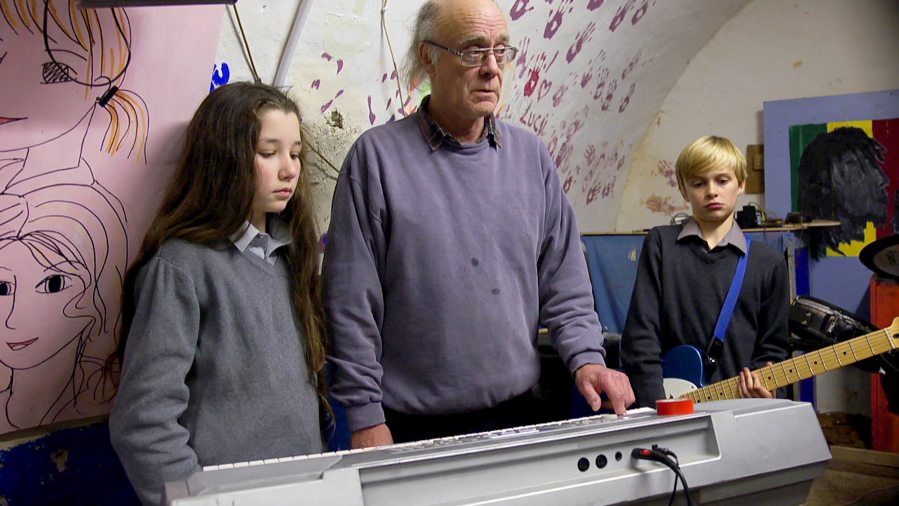In the documentary “School Life” — a charmingly eccentric portrait of Headfort, Ireland’s only boarding school for children ages 7 to 13 — the emphasis is clearly on life, and not school. Although several of the students followed by Neasa Ni Chianain and David Rane over one academic year wind up getting accepted into such prestigious secondary schools as Eton and Harrow, it’s never entirely clear, from the movie’s scant focus on academics, how they got there.
Instead, “School Life” focuses on the surrogate parenting that appears to be a bedrock principle guiding the school’s faculty and staff, chiefly embodied by longtime teachers John Leyden and his wife, Amanda.
An earlier version of the film was titled “In Loco Parentis,” a Latin phrase meaning “in place of the parent.”
For almost 50 years, Amanda has taught English, and John, Latin and math. But they’re rarely seen teaching. John also runs the music room, a graffiti-covered enclave in the school’s rambling, shabby-chic main building, where kids come to hang out (and maybe try to render a few pop tunes, in flat, endearingly off-key covers).



